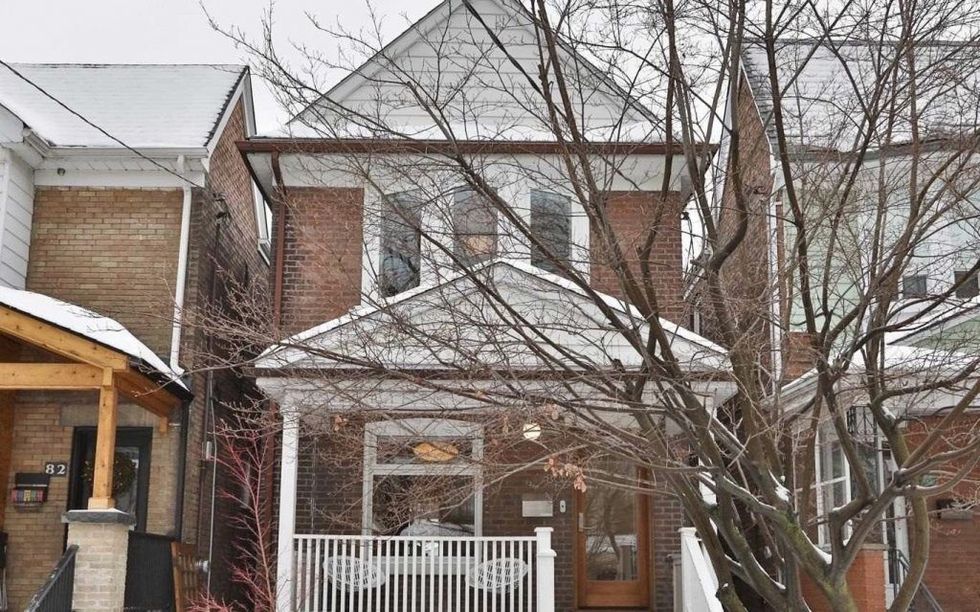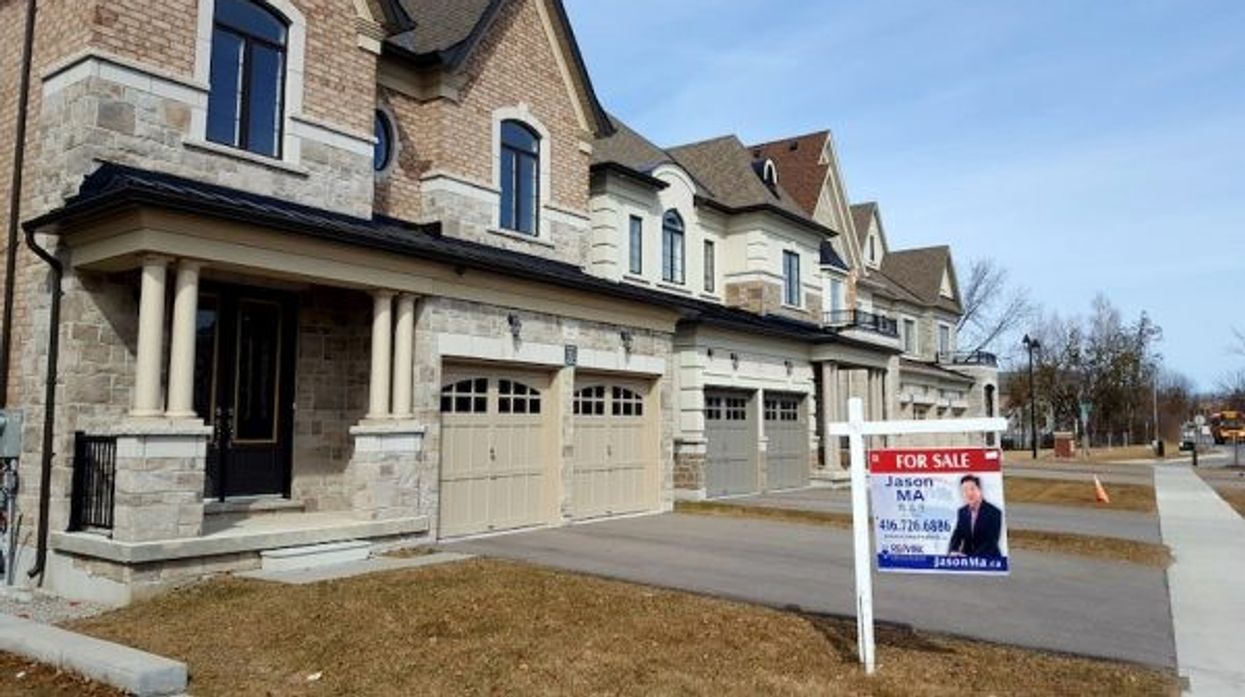It's no secret that as of late, Canada's housing market has been on fire; home prices and transactions are continuing to soar to record-breaking heights.
This is all occurring amid COVID-19, which has brought mortgage rates to historic lows as a means to support the economy through the pandemic recovery. Not to mention, the pandemic shift to working from home coupled with government aid that's increasing household savings is helping to boost home buying interest.
Because of this, buyers are hitting the market in droves, and given the lack of supply, home prices are rising at a concerning rate.
As you could imagine, this is causing a panic among buyers as they face a fear of missing out on smaller markets’ relative affordability -- and we do mean relative -- in addition to the uncertainty that the steadily increasing home prices will halt affordability in the months to come.
READ: Bank of Canada Finally Sees Early Signs of Overheating in the Housing Market
Unsurprisingly, there are now early signs of overheating in Canada’s housing market, with Bank of Canada Governor Tiff Macklem (finally) acknowledging "some signs of excess exuberance."
Though, Macklem has downplayed the need for action.
Despite admitting to the sure signs of overheating, Macklem says there are so far no plans to raise interest rates until the economy and employment are back on track following the declines caused by COVID-19.
"Right now the economy is weak, we're just coming out of the second wave. I think we need the support, we need the growth we can get," Macklem said.
Macklem's comments followed on the heels of average home prices in Canada jumped 22.8% in January to a record $621,525, while home sales were up 35.2% compared with a year earlier, setting a record for the month by a considerable margin.
And yet, even with prices sitting at record highs, homes are now selling shockingly above asking after spending just days on the market -- a true sign of the times, if you will.
Earlier this month, a detached home in Toronto's Roncesvalles neighbourhood sold for nearly 50% over asking on its first day on the market.
Located at 80 Fermanagh Avenue in the coveted west end neighbourhood, the home was listed for $1,498,000 and sold for a cool $2,200,000. (Yes, that’s a $702,000 difference or 46.8% over list).

Sure, the home is easy on the eyes, family-friendly, and functional -- but selling 46.8% over listed is still rare to see at this price point -- which is a reflection of the steep competition in Toronto’s real estate scene.
But alas, pricing houses low to create competitive bidding wars is, unfortunately, the norm and the reality here in the GTA market.
READ: Is This the Year the GTA Real Estate Bubble Bursts?
It's a story that Jordan Glaser, a Sales Representative with Re/Max Realtron Realty Inc., is familiar with.
"Things are definitely hot right now in the market, and I am dealing with these multiple offer challenges with buyers like so many in the market right now," Glaser told STOREYS.
"I believe that the demand and buyer pool is so strong and outpacing the new listing inventory by a large margin which is one of the bigger contributing factors to the heated market we are dealing with," explained Glaser.
He said while there are many reasons for this, low-interest rates are a key factor on the buyer side, and there is some apprehensiveness from sellers to put their homes on the market and have people come through, which is slowing the listing inventory.
"Having said all of that, we have been experiencing shortages in listings and tight seller markets in Toronto for many years. COVID, I think has played a role in this, but is only one of several factors," says Glaser.
Tim Syrianos, broker/owner of RE/MAX Ultimate Realty Inc., told STOREYS the current market is a reflection of the ongoing discussion over the past years: the supply chain is not enough to satisfy the present demand for housing.
"The market pressure that we’ve experienced over the past month or so is starting to show signs of price affordability ceilings. Furthermore, with the hope of the vaccine being more readily available, and growing confidence of the lockdowns being lifted, the supply that's presently on the sidelines will come to market and assist in the deceleration of the appreciation experienced," expllained Syrianos.
Like Glaser, Syrianos says he is also witnessing multiple offer scenarios, though the volume has slightly decreased, and not every property is receiving multiples.
"Over a month ago, there may have been as many as 25-30 offers on a desirable property. Now, in many cases, we’re seeing under 4-8 offers. Once again, not all properties are receiving multiple offers. This is why there are 70-80 showings within a couple of days of adding a property on the market. The market may require between 2-4 weeks to stabilize and there are already signs of this happening," explained Syrianos.
Bank of Canada's Macklem previously said the issue with the current record-low interest rates is the risk that “housing prices could get stretched and households could get stretched.” However, he has reiterated there is currently no plan to raise interest rates until 2023, when he believes the post-pandemic economy will be in better shape.
While the Bank of Canada is unlikely to raise interest rates just to cool housing, at least any time soon, Paul Taylor, chief executive of Mortgage Professionals Canada told STOREYS a solution is to encourage a new supply of entry-level priced housing.
"The recent price increases we’ve seen are driven partially by low-interest rates and partially by lack of supply and lack of listings," explained Taylor, adding that many people are competing for the same homes given the scarcity of availability.
Taylor says that, given the continual rollout of the vaccine, he anticipates more people will list their homes for sale, especially as there is a record-setting lack of homes on the market right now. This could be due to many people feeling uncomfortable with the idea of strangers visiting their home for showings during COVID.
Though, once more people begin listing their homes, Taylor says it will help moderate price growth.
"We would not want to see further blanket constraints to mortgage credit, either in the form of reduced GDS/TDS ratios or more stringent stress testing. These disqualify would-be owner-occupiers and first-time buyers but don’t impact those who have already built equity through housing appreciation as much, yet these purchasers are primarily responsible for the recent price appreciation gains," said Taylor.
"If mortgage qualification eligibility criteria or mortgage insurability criteria are to be amended, we hope policymakers ensure they encourage the aspiring middle class and would-be owner-occupiers rather than other kinds of ownership."
With files from Erin Davis.





















